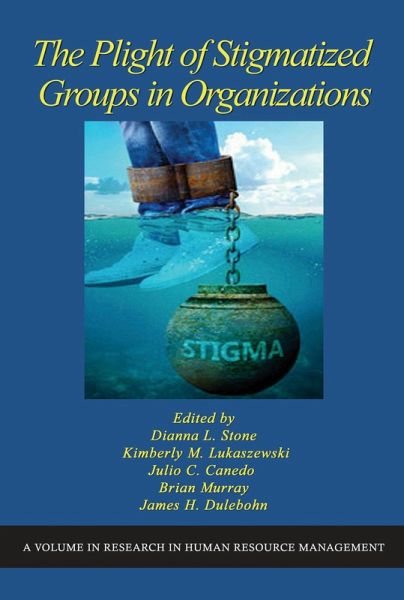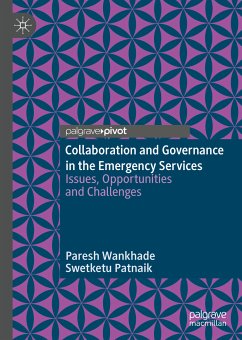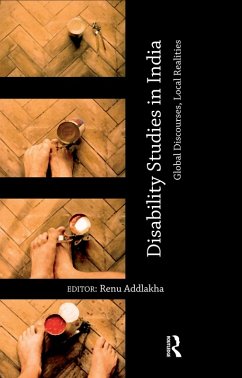
The Plight of Stigmatized Groups in Organizations (eBook, PDF)
Versandkostenfrei!
Sofort per Download lieferbar
80,60 €
inkl. MwSt.
Weitere Ausgaben:

PAYBACK Punkte
0 °P sammeln!
People are often stigmatized by virtue of their status on such dimensions as race, ethnicity, gender, age, weight, disability, or sexual orientation, and this book deals with the plight of those who are stigmatized in organizations. For example, they often experience prejudice, unfair discrimination, mistreatment, and exclusion from organizations and society as a whole. As a result, there has been an increased interest in developing ways to decrease the negative experiences of stigmatized groups, increase their inclusion in organizations, and ensure that they have the opportunity to enjoy a sa...
People are often stigmatized by virtue of their status on such dimensions as race, ethnicity, gender, age, weight, disability, or sexual orientation, and this book deals with the plight of those who are stigmatized in organizations. For example, they often experience prejudice, unfair discrimination, mistreatment, and exclusion from organizations and society as a whole. As a result, there has been an increased interest in developing ways to decrease the negative experiences of stigmatized groups, increase their inclusion in organizations, and ensure that they have the opportunity to enjoy a satisfying work life. Despite an increased interest in decreasing the negative experiences of stigmatized groups, most of the studies in human resource management (HR) and organizational behavior (OB) have focused on only a subset of these individuals including African-Americans, women, older workers, and people with physical disabilities (Dipboye & Colella, 2005). A number of other stigmatized groups have been practically neglected by organizational research including people with psychological disabilities (e.g., anxiety and depressive disorders), Asian Americans, immigrants, those with foreign accents, individuals with different sexual orientations, people who are single in organizations, women entering the corporate suite, and adolescents. Thus, the primary purposes of this issue of Research in HRM is to consider research on The plight of stigmatized groups in organizations, and foster research on those groups who have been neglected in organizational research.In view of these arguments, this issue (a) presents a brief review of the research on the plight of several stigmatized groups in organizations (e.g., Asian Americans, those with psychological disabilities, people who are single, women entering the corporate suite, and individuals with different sexual orientations, (b) identify needed research on these stigmatized groups, (c) offer directions for future research, and (d) consider the implications for practice that can decrease the negative experiences of these group members, and facilitate their inclusion in organizational settings.
Dieser Download kann aus rechtlichen Gründen nur mit Rechnungsadresse in A, B, BG, CY, CZ, D, DK, EW, E, FIN, F, GR, HR, H, IRL, I, LT, L, LR, M, NL, PL, P, R, S, SLO, SK ausgeliefert werden.













